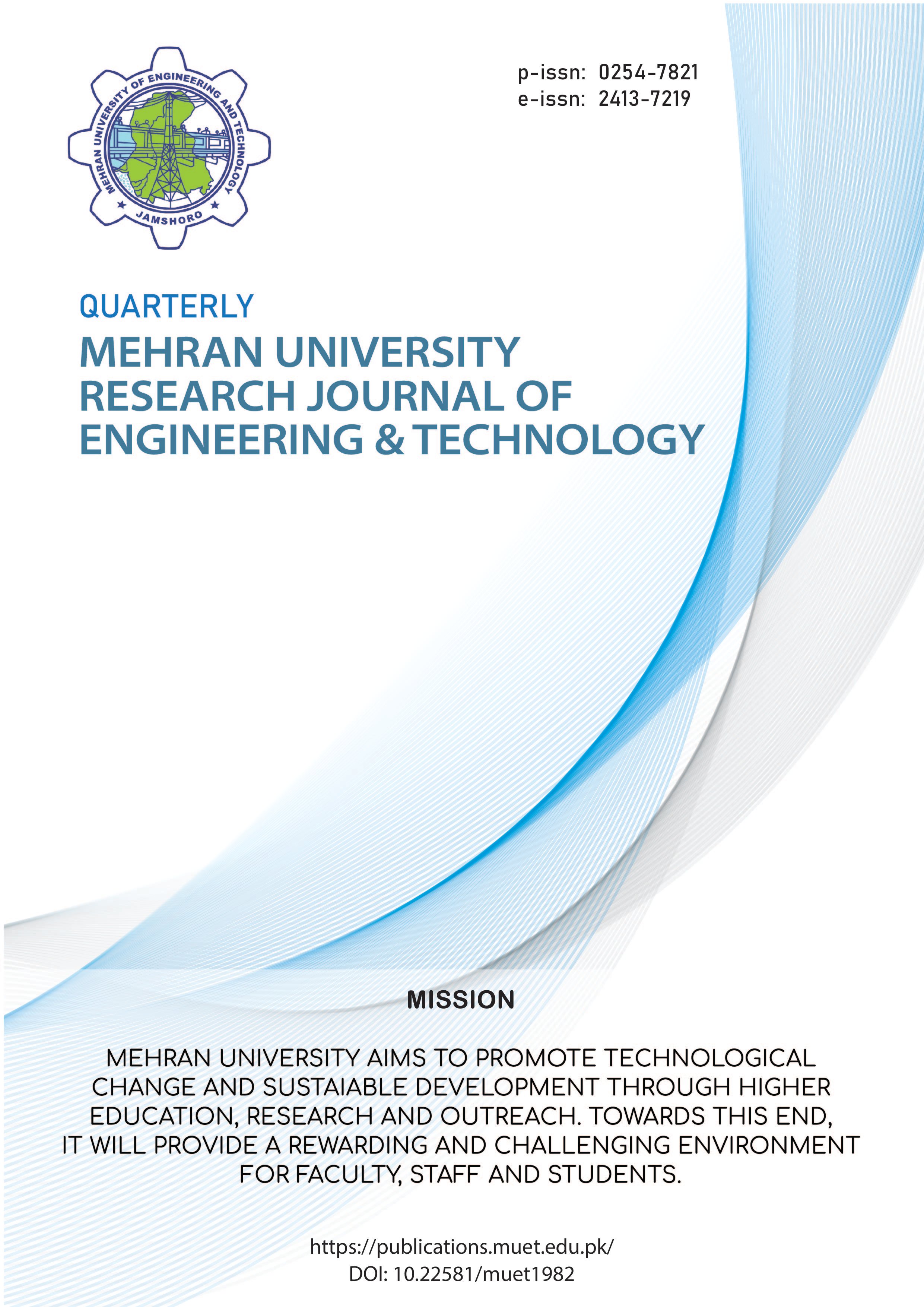Indexed in Clarivate JCR
This Journal has been accepted for indexing in the Emerging Sources Citation Index (ESCI) of the Clarivate JCR with effect from Volume 37 Issue 1 January 2018.
Read more about Indexed in Clarivate JCR
This Journal has been accepted for indexing in the Emerging Sources Citation Index (ESCI) of the Clarivate JCR with effect from Volume 37 Issue 1 January 2018.
Read more about Indexed in Clarivate JCR
Important Notice!
Message for Readers:
Effective from the April 2025 issue, all issues of the Mehran University Research Journal of Engineering and Technology (MURJET) are published on our new website at https://murjet.muet.edu.pk/index.php/home/issue/archive. Please note that archived issues published prior to April 2025 will remain accessible on this website. Readers are encouraged to visit the new website for the latest publications, announcements, and journal updates.
Message for Authors:
All new manuscript submissions are now being processed through our new website at https://murjet.muet.edu.pk/index.php/home/about/submissions. In addition, all routine editorial and review operations have been fully transitioned to the new platform. Authors are requested to use the new website for manuscript submission, editorial correspondence and tracking of their submissions.
Mehran University Research Journal of Engineering and Technology (MURJET) is an international, multidisciplinary, open-access scholarly journal. It publishes high-quality original research articles that describe the latest developments and advancements across all fields of engineering and technology. The journal also considers review and survey papers in its priority areas, primarily by editorial invitation.

p-ISSN: 0254-7821, e-ISSN: 2413-7219
Frequency: Quarterly (January, April, July, October)
DOI: 10.22581/muet1982
Impact Factor: 0.7 (Clarivate JCR 2024)
HEC Pakistan Recognized: X Category (2024-2025)
As per HEC Journals and Publications Policy 2024, all Journals indexed in the Emerging Sources Citation Index (ESCI) collection of Web of Science (WOS) are recognized as 'X' category journals.
Publisher: Mehran University of Engineering and Technology, Jamshoro, Pakistan